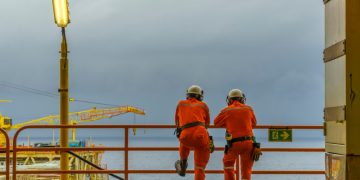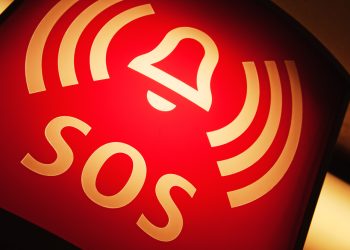The International Maritime Rescue Federation (IMRF) has launched its #SARyouOK? Guidance and Best Practice Framework. This follows the launch of its #SARyouOK? initiative at the G5 International Mass Rescue Operations (MRO) Conference in Gothenburg, Sweden, in June 2022.
The initiative is supported by the Trinity House DFT Maritime Safety Fund and aims to promote awareness of mental health and wellbeing issues and break down the attached stigma for those working in the maritime search and rescue (SAR) sector.
This initiative provides comprehensive guidance on mental health and wellbeing for maritime SAR services. The aim is to recognise the unique psychological challenges that SAR personnel face while dealing with high-stress and traumatic situations in their line of duty. The core of the guidance is structured around the ‘Prepare, Normalise, Support’ approach, which provides a structured pathway to managing stress and trauma among SAR personnel.
The guidance stresses the importance of an organisation’s commitment to promoting mental health and wellbeing. This entails assessing the organisational culture, ensuring favourable working conditions, and having well-defined policies and procedures in place. Allocating budgets for mental health support and nurturing a culture of transparency are also identified as crucial steps.
The guide addresses an important issue – the management of secondary trauma. It refers to the emotional and psychological distress that SAR personnel can experience when they are exposed to the traumatic experiences of others. The guide recognises that SAR personnel can be vulnerable to both primary and secondary trauma and provides strategies to mitigate these effects.
It further aims to provide a comprehensive approach towards understanding and addressing mental health and well-being within the SAR work environment. It ensures that individuals can access the necessary support to overcome the challenges they face during their operations. By incorporating these practices into their daily operations, SAR organisations can enhance the effectiveness of their operations and ensure the long-term health and well-being of their personnel.
#SARyouOK? has received support from SAR organisations worldwide, organisations have shared case studies that showcase different models and best practices in use across various contexts. These real-life examples provide practical insights into how SAR organisations can effectively support their staff and volunteers.
A society that values and supports mental health is a society that is better equipped to address the challenges of the modern world. And the same is true for organisations.
..Caroline Jupe, CEO of the IMRF, welcomed the framework.
Furthermore, in an exclusive interview to SAFETY4EA, Caroline Jupe, the new CEO of the International Maritime Rescue Federation (IMRF) referred to the key findings from latest IMRF campaign – the #WomeninSAR initiative, highlighting there is need for concerted effort from all industry stakeholders to address key barriers that the campaign acknowledged.
Captain Ian McNaught, Deputy Master at Trinity House, said: “We are proud to once again partner with the IMRF and support the #SARyouOK? initiative that looks to improve the mental health and wellbeing of maritime SAR personnel all over the world, ensuring the barriers that stop people from talking about their experiences are broken down.”
The #SARyouOK? initiative is a vital step in creating an open and honest environment in the maritime SAR community, ensuring that individuals and organisations can all benefit from a better environment. I want to thank everyone who played a part in the development of this guidance and framework. The IMRF community has once again come together to showcase how collaboration is key if real progress is to be made.
..Jupe added.
By following the guidelines presented in this document, search and rescue organisations can cultivate a culture of support and resilience, ultimately improving their ability to save lives at sea while taking care of their most valuable asset – their personnel.




























































